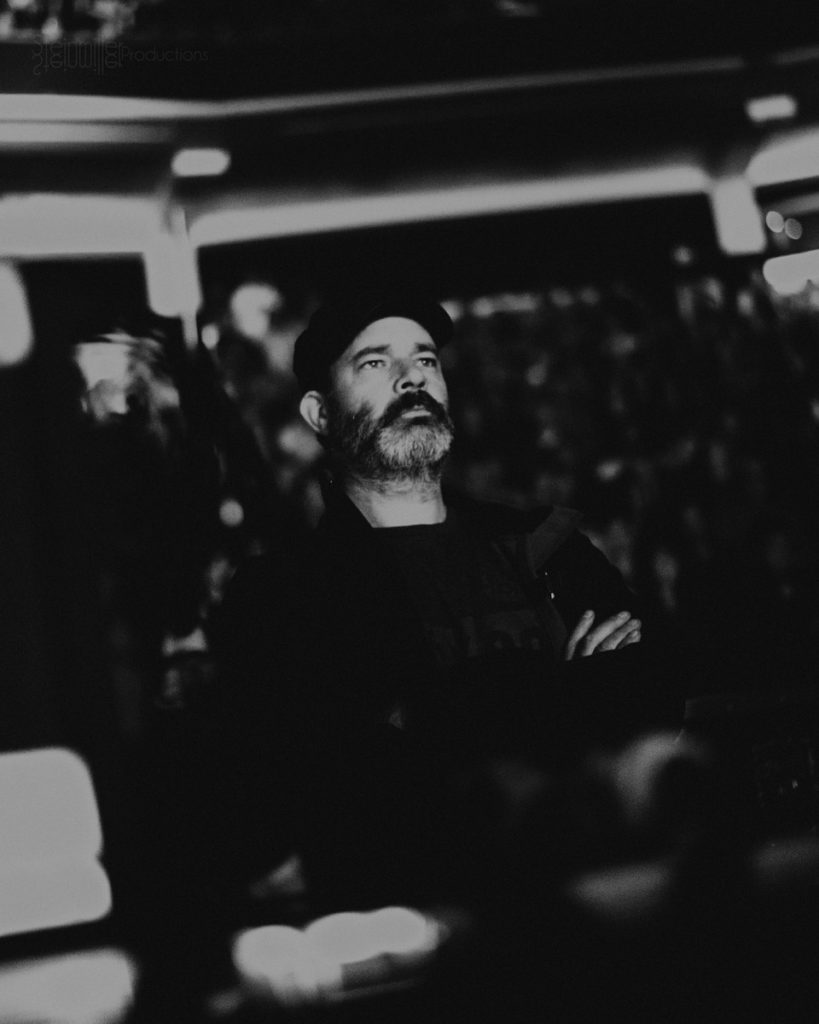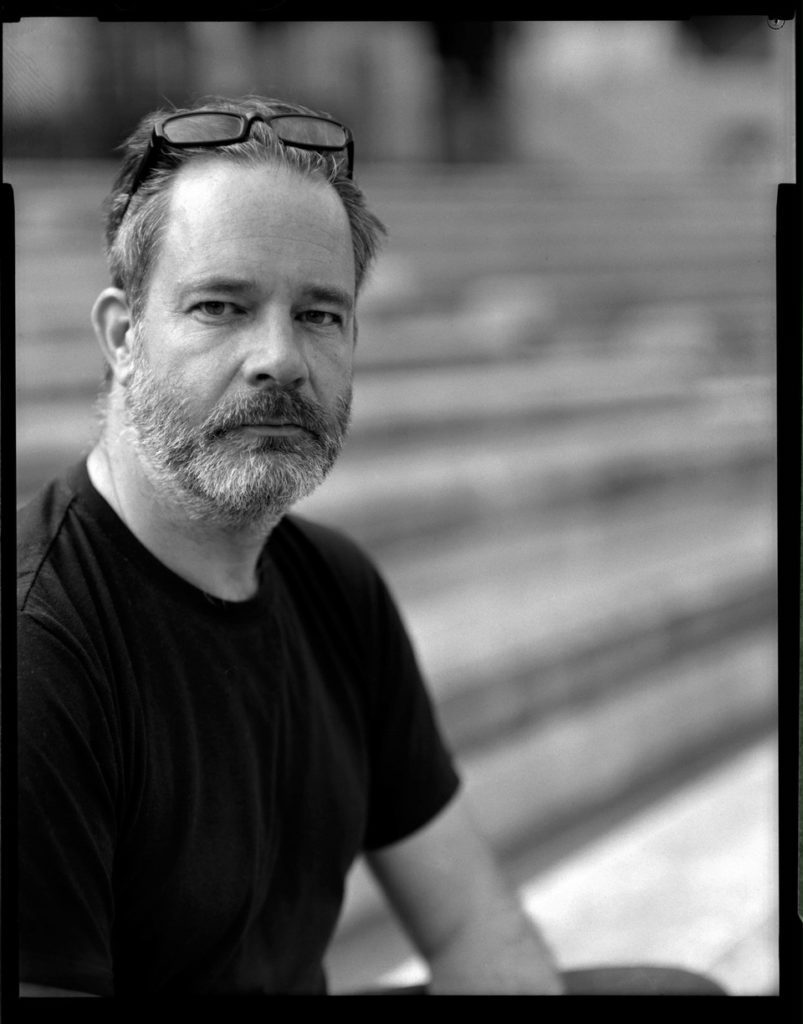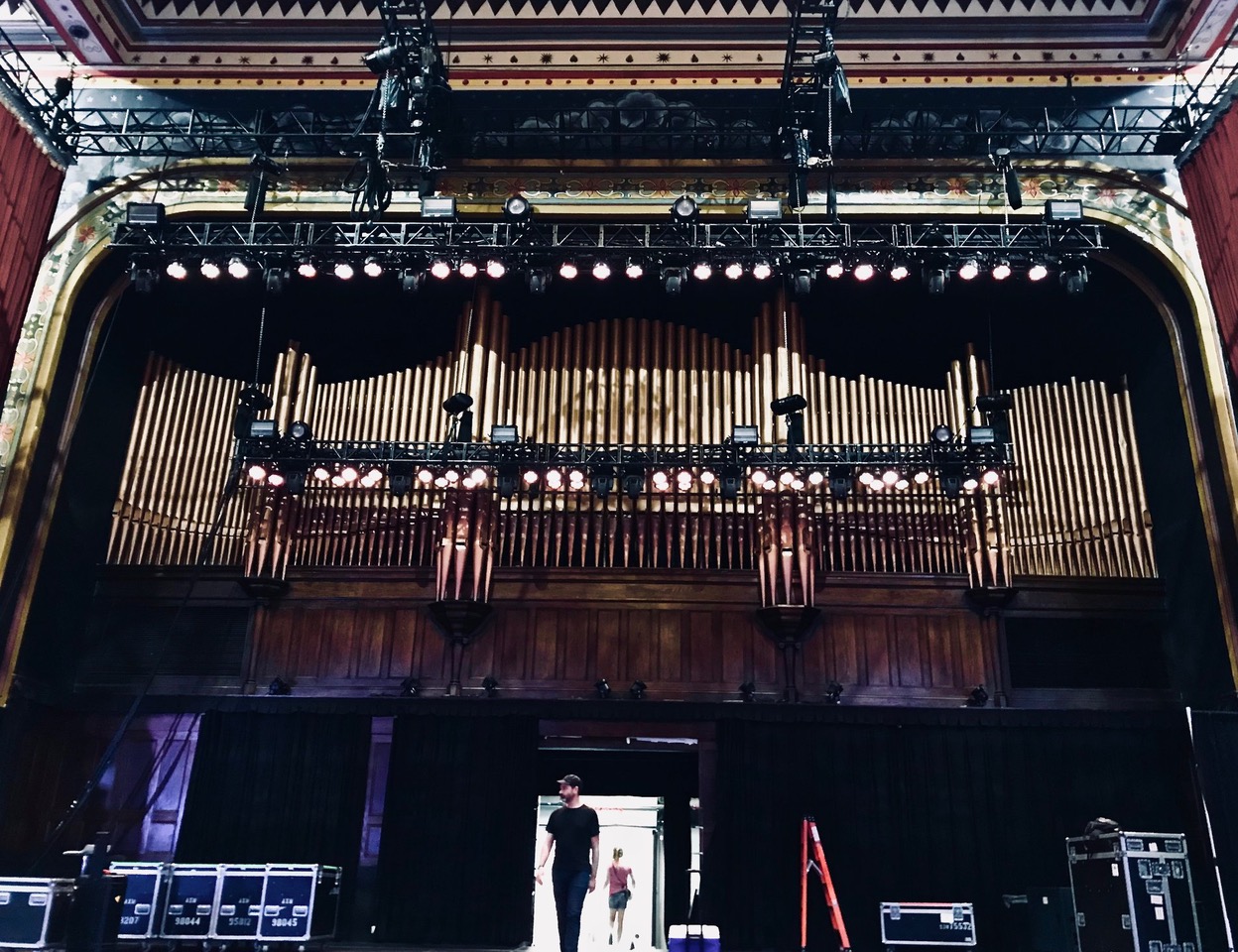Photo credit: Oliver Gerard
This week we caught up with Glen Thomson, a freelance Tour, Production and Event Manager who is currently working with The Pretenders whilst working as Event Manager at Regular Music and guest lecturing at Napier University.
With over 20 high profile artists and numerous International festivals on his CV to date, we chat about how he got there and what has changed since it all began….
You have worked with some huge names; The Pretenders, Simple Minds and Belle & Sebastian to name a few. How did you get from your first job in the industry to where you are now?
It’s hard to say what my first job ‘in the industry’ was, as I kind of fell into it. I was in a band, loved the scene in Glasgow in the mid-90’s and would do pretty much anything just to be at shows (or in them) 7 nights a week. From helping out at a bandmate’s club night at the 13th Note, to working the bar there, to driving friends’ bands to London and back just for the hell of it, (and unconsciously learning how to be a backline tech in the process).
I worked at Tuts for a few years doing anything at all – bar, door, KP and gig rep. Jerry Radford at Tuts saw I was interested in sound so trained me on the job, for free (thanks again, Jerry). So I guess it was around then I started realising I could do more than just pay my rent and keep going to shows.
DF started giving me bigger shows, so I just learnt by working hard, keeping my eyes and ears open, saying yes to (almost) anything, and talking to all the touring crew and local suppliers. I was a hoover for information. When I got to the point where I was running SECC shows and was artist liaison for the main stage at TITP, I realised the next step had to be getting on the road.
I knew another Glasgow promoter who did a lot of small US-based acts who didn’t have the budget for touring crew. They would come over needing a local ‘all-rounder’, so he got me in the door with a couple of those, and work just snowballed from there. I was learning on the job, but bands or their agents would recommend me to the next artist, and it just continued. That was around 2002, and I haven’t been without a tour or major event in the pipeline since then.
You have worked in a wide variety of roles, from Tour Manager to Production Manager, Artist and Company Manager, Producer…the list goes on. Do you have a favourite?
The short answer is – not really. There are aspects to all of them I love – as TM, really clicking with an artist and their management so that the majority of issues are dealt with invisibly and the artist is given the space and energy to produce their best show every time; as a touring PM, pulling together the right team to deliver the artist’s vision in what are often extremely challenging circumstances; as an event PM, getting the most out of a budget, venue and available resources to give the touring crew what they need to bring their show together.
I guess moving from one role to another also keeps things fresh as I’m prompted to re-examine the demands and parameters of each.

We’ve all heard of the post event blues that comes after working 24/7 on a tour or festival – how do you manage your wellbeing between events?
That’s a tough one. It’s taken years to get better at it, and I think I’ll always be working on it. Above all else is the dynamic at home – how I, my partner and my daughter cope with ‘re-entry’ after a long absence.
Personally I have a few strategies – I have desk space out of the house, to help keep work and life separate, and I go cycling, hillwalking or sailing as much as I can, which seems to soften the impact of coming to a crashing halt. Cooking is another great pleasure after months of being catered for. I have to say my partner and daughter don’t complain about that side of my coming home!
You’ve been in event and sound production for many years – what has changed in the industry since you started?
In general terms, you can do a lot more with less. Audio systems are more compact but are controllable to an unbelievable degree; lighting tools are much more impactful but paradoxically consume much less power; video kit is getting lighter and more flexible; all of it takes less truck space and less time to load in and out of a venue.
In particular though, the internet has had the biggest impact on my role in the industry. When I started, I had to dial up to connect and send the nightly one-page report to DF head office. Touring, I took a bag of adaptors on the road for foreign phone sockets, along with a list of dial-up numbers local to each city. When I was driving across Europe, I had to follow paper maps. Now we’re on 24-hour call from anywhere in the world.
Google Maps, Uber, food delivery apps, and flight finder websites have all made life easier, but they also raise expectations of what’s possible. Bands can write, record, do interviews, and connect with their audience directly on laptops and phones in hotels and dressing rooms, buses and airport lounges.
But the internet has not changed the demand for the live experience. This has only grown stronger, so thankfully we still have to move artists, crew and equipment around the world to bring it to the audience. Due to the current pandemic there’s a huge army of people confined at home right now, desperate to get all of that that moving again, and hoping that the appetite for live events will be unchanged when they’re allowed to resume.
What’s the one item when you’re on the road that you can’t live without?
Professionally? My phone. Personally, it’s my folding bike. Every day off and every morning before load in, I get away from my email for an hour or two to explore wherever I am in the world.








